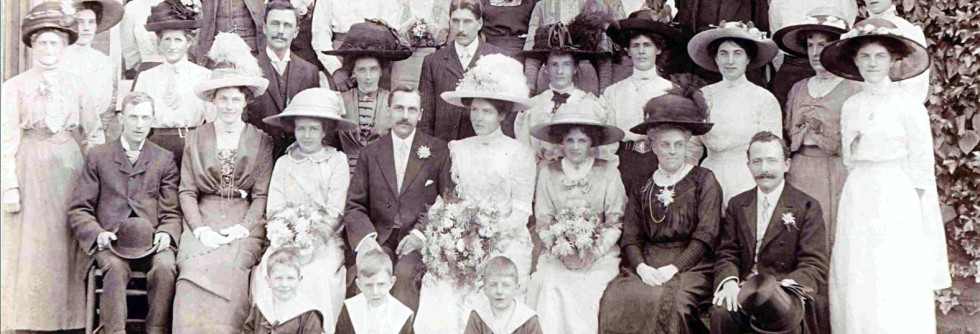
JJ Rowe Diary: 16 Feb 1889
Introduction
Day 6 of Joseph’s voyage saw Pollie going ashore in Malta for groceries. The troopship pulled up anchor and continued on its journey, but it was lashed by a hurricane.
The Diary Entry
16.2.89 Saturday
Fine morning. Arose early. Took Pollie. got water, to wash baby. Had breakfast.
Pollie went on ashore & went to market. Brought back milk & cheese, which I am very fond of, some eggs, oranges, nuts, bacon & sausages, I was nevise [sic] time she went. Boy good, drank a whole bottle of milk while she was away & had fresh beef for dinner. Very good.… Continue reading









 Have you discovered a gardener in your family? Perhaps, like me, you have come across one or more ancestors noted in the census records as gardeners, horticulturalists, or nurserymen. Some, like
Have you discovered a gardener in your family? Perhaps, like me, you have come across one or more ancestors noted in the census records as gardeners, horticulturalists, or nurserymen. Some, like 
 Eighty-four years ago today, on 4 September 1932, great-uncle Walter Clarke died in Palgrave, Suffolk, England at the age of 71. He was a public-spirited man, and his death was therefore felt not only by family, but by his community as well. The Diss Express for 9 September 1932 carried a report of Uncle Walter’s death that included many details of his public service.
Eighty-four years ago today, on 4 September 1932, great-uncle Walter Clarke died in Palgrave, Suffolk, England at the age of 71. He was a public-spirited man, and his death was therefore felt not only by family, but by his community as well. The Diss Express for 9 September 1932 carried a report of Uncle Walter’s death that included many details of his public service.